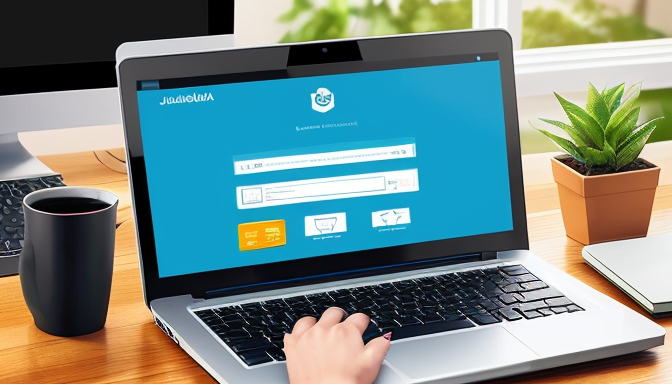When it comes to managing your Joomla website, security should be your top priority. Imagine your site as a bustling storefront; if the locks are weak, anyone can waltz in and make a mess. This article explores crucial security practices for Joomla users, detailing essential measures to protect your website from potential threats and vulnerabilities. By understanding the risks and implementing robust strategies, you can create a safe haven for your online presence.
Joomla, like any other content management system, is susceptible to a range of vulnerabilities. From outdated extensions to weak passwords, these vulnerabilities can serve as open doors for malicious attacks. For instance, did you know that over 70% of Joomla sites hacked last year were due to outdated components? Recognizing these risks is crucial because it allows you to take proactive measures. Ignoring them is like leaving your front door wide open and expecting no one to walk in!
Now that we’ve established the threats, let’s dive into some best practices for securing your Joomla site. Here are a few strategies you should consider:
- Regular Updates: Always keep your Joomla core, extensions, and templates up to date. This is your first line of defense against vulnerabilities.
- Strong Passwords: Use complex passwords that mix letters, numbers, and symbols. Think of it as a strong lock on your door.
- Backup Regularly: Implement a routine backup schedule. If things go south, you’ll want a safety net to fall back on.
By following these essential practices, you can significantly reduce the risk of security breaches. Remember, a secure Joomla site is not just about installing plugins; it’s about creating a culture of security awareness. So, are you ready to fortify your online fortress?
Understanding Joomla Vulnerabilities
When it comes to Joomla, understanding its vulnerabilities is like knowing the weak spots in a fortress. Just as a castle needs strong walls to withstand sieges, your Joomla site requires awareness of potential threats to keep it safe. Common vulnerabilities often arise from outdated extensions, weak passwords, and improper configurations. For instance, did you know that a staggering number of Joomla sites are compromised due to neglected updates? These updates are not just regular maintenance; they are essential for patching security holes that hackers eagerly exploit.
Moreover, the importance of recognizing these vulnerabilities cannot be overstated. Ignorance is bliss, they say, but in the realm of web security, it can lead to disastrous outcomes. The implications of a security breach can be severe, including data loss, website defacement, and even legal repercussions. To illustrate, consider the following table that outlines some common vulnerabilities and their potential impacts:
| Vulnerability | Impact |
|---|---|
| Outdated Extensions | Increased risk of exploitation |
| Weak Passwords | Easy access for unauthorized users |
| Improper Configurations | Potential data leaks and breaches |
By being proactive and addressing these vulnerabilities, you can significantly enhance your site’s security. Just like a vigilant knight guards the castle gates, you must stay alert and informed about the latest security practices. Remember, a secure Joomla site is not just about having the right tools; it’s about adopting a mindset of continuous improvement and vigilance.

Best Practices for Securing Joomla
When it comes to securing your Joomla website, think of it like locking the doors and windows of your house. Just as you wouldn’t leave your home open to intruders, you shouldn’t leave your website vulnerable to cyber threats. The first step in this process is managing updates. Joomla regularly releases updates that patch security vulnerabilities. Ignoring these updates is like ignoring a warning sign; it can lead to disastrous consequences. Ensure that your Joomla installation, as well as all extensions and templates, are always up-to-date.
Next on the list is backups. Imagine losing all your hard work due to a security breach or a server crash. Regular backups act as your safety net. Schedule automatic backups to ensure you can quickly restore your site to its previous state if something goes wrong. Use reliable backup solutions that allow you to save your data both locally and in the cloud.
Furthermore, protecting against vulnerabilities is crucial. Employ strong passwords and consider using two-factor authentication (2FA) to add an extra layer of security. A strong password is your first line of defense; it’s like having a strong lock on your door. Additionally, be cautious with third-party extensions. Not all of them are created equal, and some can introduce vulnerabilities. Always research extensions and only download from reputable sources.
In summary, keeping your Joomla site secure is an ongoing process. By managing updates, maintaining regular backups, and being vigilant about potential vulnerabilities, you can create a robust defense against cyber threats. Remember, a secure website not only protects your data but also builds trust with your visitors.
Frequently Asked Questions
- What are the common vulnerabilities in Joomla?
Joomla can be susceptible to various vulnerabilities such as SQL injection, cross-site scripting (XSS), and insecure extensions. Understanding these vulnerabilities is crucial for maintaining a secure website.
- How can I secure my Joomla website?
To secure your Joomla site, regularly update your Joomla version and extensions, use strong passwords, implement two-factor authentication, and regularly back up your website data.
- Is it necessary to use security extensions for Joomla?
While not mandatory, using security extensions can significantly enhance your website’s protection by providing additional features like firewalls, malware scanning, and activity logging.
- How often should I update my Joomla site?
It’s recommended to check for updates at least once a month. Keeping your Joomla installation and extensions up to date helps protect against newly discovered vulnerabilities.
- What should I do if my Joomla website gets hacked?
If your site is hacked, immediately change all passwords, restore from a recent backup, and scan for malware. It’s also wise to review your security practices to prevent future breaches.